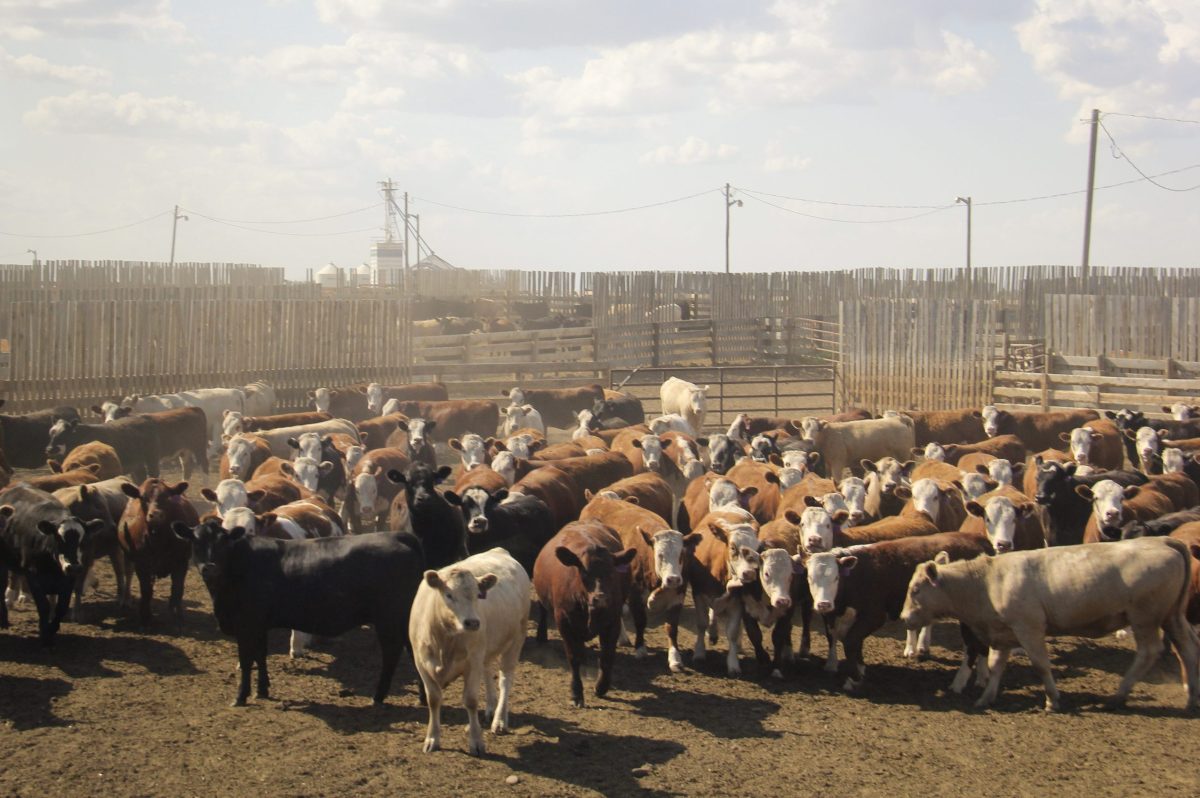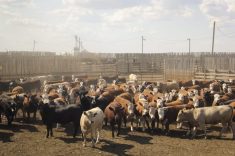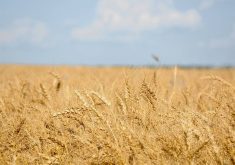CNS Canada — U.S. wheat futures have posted large losses over the past two months, but could be headed lower still as the winter wheat harvest moves northward and the country’s spring wheat crop is reported to be in good shape for the time being, said an analyst.
CBOT soft wheat futures are currently trading at some of their weakest levels in four years. Kansas City hard red winter and Minneapolis spring wheat futures have more room to go before hitting any yearly lows, but are also well off their early May highs.
Read Also

U.S. livestock: Cattle futures gain, hogs fall back
Chicago cattle futures made gains on Wednesday while hogs fell back. Most-active April live cattle closed at 238.725 cents a…
“We’re looking at improved harvest conditions for winter wheat in the Southern Plains… and yields are improving as you move north into northern Kansas, Nebraska, and South Dakota,” said Randy Martinson of Progressive Ag at Fargo, N.D.
That harvest pressure may continue for the next month, but he said a post-harvest rally for winter wheat was possible later in the summer, as the market will need to start providing an incentive for planting next year’s crop.
For spring wheat, he said, it will be tougher to generate a rally in Minneapolis without a weather problem. Spring wheat fields across the northern-tier states are “heading out and looking good,” with the record rainfall in June now turning to much needed heat, said Martinson.
While the crops are generally in good shape, there are some disease concerns due to the wet weather in June and farmers are busy with fungicide applications, he added.
The excess moisture and flood damage creating larger concerns for wheat crops in Canada will provide some support for U.S. spring wheat futures eventually, but Martinson said the Canadian issues were overshadowed in the futures market by relatively good U.S. conditions for the time being.
From a chart standpoint, the Minneapolis September wheat contract moved below nearby support, at US$6.60 per bushel, on Tuesday but won’t see any major support until US$6.50 per bushel, said Martinson. That contract hit a low of US$6.12 per bushel in late January.
— Phil Franz-Warkentin writes for Commodity News Service Canada, a Winnipeg company specializing in grain and commodity market reporting.
















